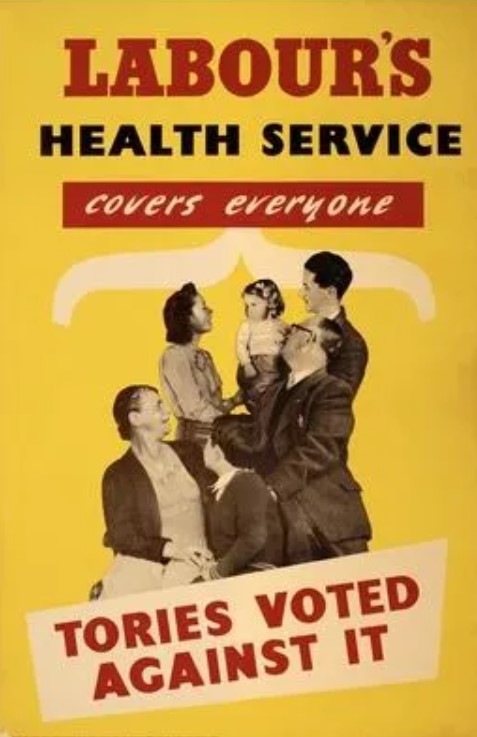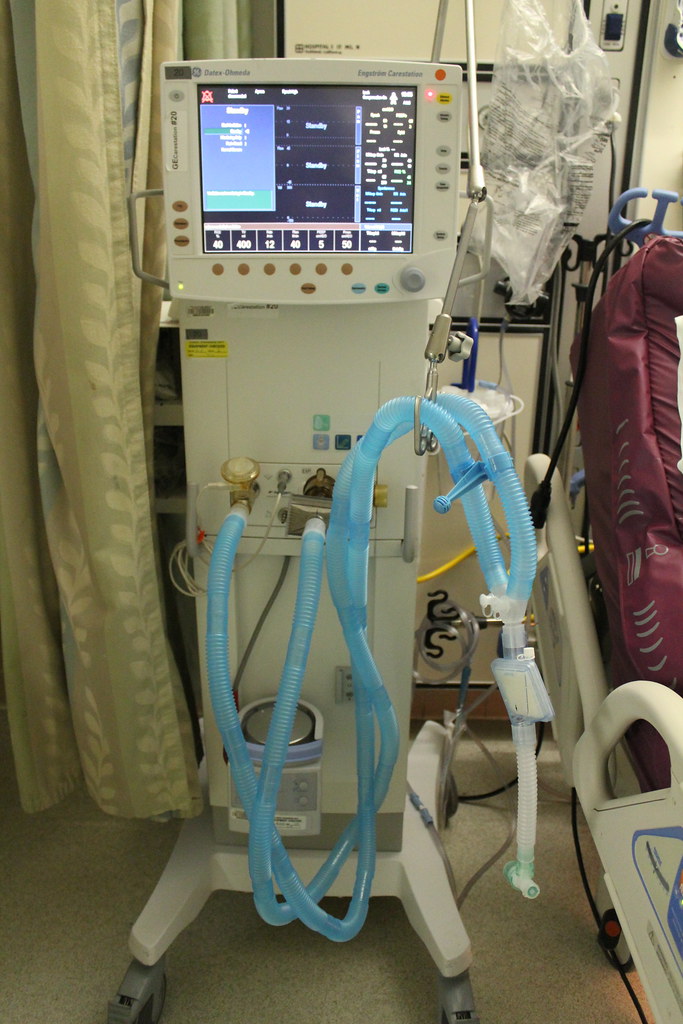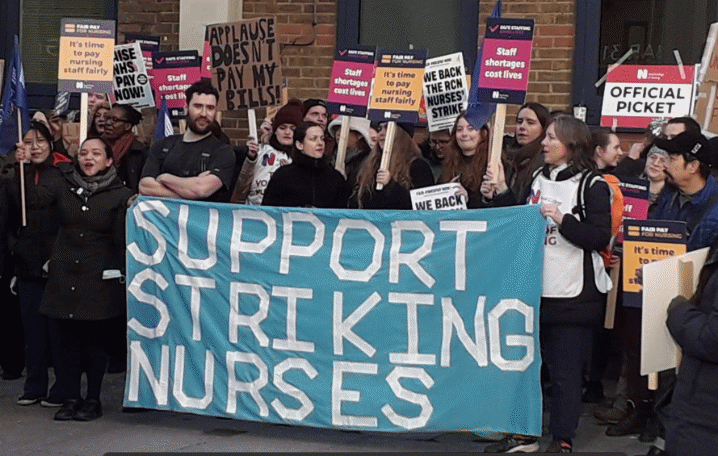By David Cartwright, Glasgow North West Labour Party and Andrew Ford, Unite union rep in the NHS
Boris Campos, a doctor who is active in the French labour movement, has posed some questions about the National Health Service in the United Kingdom to try and understand if it is the right policy to advocate in France. We publish here those questions with our response. We would also welcome contributions from our readers on the questions raised.
*****************************
When, how, and why was the NHS established in the United Kingdom?
The NHS was established on 5 July 1948. The Labour Party won a landslide victory in the 1945 general election with working people determined that they should not return to the same conditions they faced prior to the outbreak of the war in 1939. A critical part of their aspirations was adequate health provision. The Labour Party put through a bill on 30 April 1946 to establish the NHS. In proposing the bill, Aneurin Bevan. Minister of Health declared:
“It is cardinal to a proper health organisation that a person ought not to be financially deterred from seeking medical assistance at the earliest possible stage.”
A health service had been promised to the troops in the Beveridge Report in 1942 and just like Lloyd George betrayed the masses after the 1919 election, Churchill fully intended to renege on the promise. The victory of the Labour Party in 1945 showed that the working class had understood Churchill’s plans.
What health provision was in place for working people before the establishment of the NHS?
When he proposed the bill, Aneurin Bevan referred to the national health insurance scheme in place at the time:
“Although it is true that the national health insurance system provides a general practitioner service and caters for something like 21 million of the population, the rest of the population have to pay whenever they desire the services of a doctor.”

As at 1938, the health insurance act only covered 43 per cent of the population. And Bevan went on:
“It is one of the evils of having to buy medical advice that, in addition to the natural anxiety that may arise because people do not like to hear unpleasant things about themselves, and therefore tend to postpone consultation as long as possible, there is the financial anxiety caused by having to pay doctors’ bills.”
The Nuffield Trust has written a document describing the system of health care before the introduction of the NHS. Here is an extract:
“General practice covered workers under Lloyd George’s National Insurance Act of 1911, but not their wives and families, whose proper demands were curtailed by the need to pay fees for service.”
For those able to access the General Practice (GP) services, they were absolutely minimal:
“CAH Watts, a GP writing of his experiences in a mining community before the second world war, recalled the waiting room with rows of seats for about 60 patients who sat facing a high bench like a bank counter. Behind stood the three doctors and, behind them, the dispenser. The doctor called the next patient to come forward. Having listened to the complaint, he turned to the dispenser to order the appropriate remedy. There was rarely any attempt at examination.”
For decades, hospital services for working class people were provided at ‘infirmaries’ as part of the ‘workhouse’ system (institutions called ‘poorhouses’ more honestly in Scotland). These were heavily regimented institutions where working class people who could no longer work for whatever reason had to spend their last days. At the start of the 1900s, 30% of people aged over 70 lived in workhouses. The Local Government Act of 1929 gave local authorities the power to take over the infirmaries and create municipal hospitals but very few councils did so.
The need to pay for medical services meant that many working class adults and children died from treatable illnesses and diseases that rich people were able to survive. One in twenty women were dying in childbirth. Tuberculosis (TB) was rampant and about 20,000 people a year died of it right up to the late 1940s.
Can it be shown that the NHS really led to an improvement in standards of health for the working class?
The NHS was the first system in the world to provide free health care to the whole population. To this day it is considered a massive achievement in UK history. It was celebrated in the 2012 London Olympics ceremony and although the Conservative Party wants to replace it with private healthcare they tread carefully making out they are in favour of the NHS because they know how dear it is to the people they want to get votes from.
The Tribune magazine has written an article called ‘How the NHS was won’. In that article they highlight some of the successes in the early period, despite initial difficulties and opposition from the Tories and the Labour Party right wing:

Until the establishment of the NHS, development of modern equipment and treatments was held back
“By 1964 around one in five people visited the hospital at least once a year, a sixfold increase since 1948. Within twenty years the infant mortality rate in England and Wales had halved, with the maternal mortality rate reduced by two-thirds. Deaths from infectious disease declined 90 percent by 1970 for both men and women. The National Statistics office found that premature deaths among those aged 15–44 halved within a decade of the NHS being established, and for those aged 1–14 years old, fell by more than 60 percent.”
Until the existence of the NHS many working people had little access to modern healthcare and if they got sick it all depended on what money you could access. Like the USA today. The fact that only a very small number of people could afford advanced treatments held back advances in medical and surgical procedures – which affected everyone, rich and poor. For instance blood transfusions were a feasible treatment from the 1920s but was not widely available until the advent of the NHS. Blood loss is a huge factor in deaths from injuries or under surgery but transfusions were not widely available until the 1940s.
Were there any negative features of the NHS, in the way it was organised? Were compromises made with private interests and the profit motive?
It is inevitable with any major shift towards public ownership in favour of working people that rich vested interests will try and defend their privileged position. The establishment of the NHS faced these very same difficulties. Ironically, the stick that was used against the NHS policy arose from its massive success. So many people took advantage of free spectacles, dental treatment etc that the expenditure exceeded Bevan’s original budget expectations. The right wing leadership of the Labour Party used this issue of cost to introduce charges for dental and eye care in 1951. Bevan resigned from the Cabinet in disgust.
General Practitioners had previously been self employed as private traders. They did not become NHS employees, rather they remained self employed but under contract to the NHS and were paid a set amount per patient registered with them.
The medical profession, organised in the British Medical Association (BMA), fiercely resisted the NHS as they feared the impact on their livelihoods. Bevan was obliged to compromise with them, in his words he “stopped their mouths with gold”, but he also allowed GPs to remain as private contractors to the NHS and hospital doctors to engage in private practice using NHS facilities and handed over the management of hospitals to them. In so doing he baked in a hierarchical, paternalistic structure to the NHS. He also froze out the socialist activists in South Wales mining communities who had pioneered the ideas of the health service. Their system was far superior – the doctors were just employees, obviously with special skills, but no special elevated status, and the whole system was controlled democratically by community and working class organisations.
Some of the difficulties that were faced in setting up the NHS were illustrated in an episode of Who Do You Think You Are featuring actor Ruth Jones whose grandfather was a lynchpin of the Medical Aid Societies in South Wales in the 1930s.
Barbara Castle took steps to end the ‘pay beds’ in NHS hospitals in the late 1960s. Pay beds were for private patients who were paying doctors for private treatment who then occupied NHS beds. In effect it was a state subsidy to private medical practitioners.
Did the pharmaceutical and medical equipment industries remain in private hands? With what consequences for the NHS?
They did remain in private hands – and they took full advantage. Even now NHS workers joke how everything costs twice as much when it is the NHS buying it. The British drug companies were allowed to use the NHS as a captive market to build profits which they could use as a platform to break into the world market.
It is commonly said that the NHS is not functioning as well as it used to, that it is moving away from the principles upon which it was founded. Is this true, and if so, why and in whose interests?
Nothing much changed in the NHS from 1948 until the 1980s. At that point Margaret Thatcher introduced an ‘internal market’ in which the government, in a convoluted way, tried to buy healthcare for the population – from itself in the form of the hospitals. She waited until her third term, after defeating the miners to create a bizarre pretence of a market in which government bodies commissioned or bought healthcare from hospitals, organised in ‘Trusts’. the Trusts are business units owned by government which are incentivised to act in a commercial fashion. The purchasers of healthcare have gone through many relaunches and revolutions with a constant change in acronyms – Primary Care Trusts, then GP Fundholders, then CCGs until recently, and now ICBs (Integrated Care Boards) and ICSs.

Nurses, doctors and ambulance drivers have all been on strike to defend the NHS and fight against declining pay
At the same time huge tracts of healthcare have been privatised and out-sourced by Tory governments, but also by Labour under Tony Blair. Hospitals have been built at 2, 3 or 4 times their real cost under Private Finance Initiative (PFI) schemes. And pay has been held down so severely that staff are leaving in droves for better paid work. So it’s a huge crisis. And one that has been deliberately created to undermine support for the NHS.
There is a national crisis in care and dementia which no-one is addressing. Many hospitals have one quarter of their beds occupied by old people with no medical needs but who cannot live at home but cannot be found a place in care. This distorts the whole system, especially Accident & Emergency (A&E), but also the huge ambulance waits we saw last winter.
How can this situation be remedied?
The future of the NHS must be secured as part of a socialist programme for the economy as a whole.
Specifically with regards to the health service we would argue for the following demands:
- Abolish the internal market. Supply healthcare on the basis of clinical need (the internal market still does not exist in the Scottish NHS)
- Make GPs employees of the NHS not contractors to it
- Renationalise all the outsourced NHS services
- Nationalise the Private Finance Initiative hospitals without compensation
- Nationalise the pharmaceutical companies and the suppliers of health equipment
- Restore pay to the level of 2010
- Bring health and social care together in one state-provided service (along the lines of the ‘National Care Service’ promised by Jeremy Corbyn). This is the system on the Isle of Man.




Thank you very much to Left Horizons for this very instructive response to the questions. I wonder how many people in Britain are fully aware of the history of the NHS, but certainly, in France, the points explained here will contribute to the discussion on the Left as to how to provide full-scale and high-quality healthcare to the mass of the population, irrespective of income, social status, or any other considerations. Keep up the good work, Left Horizons.